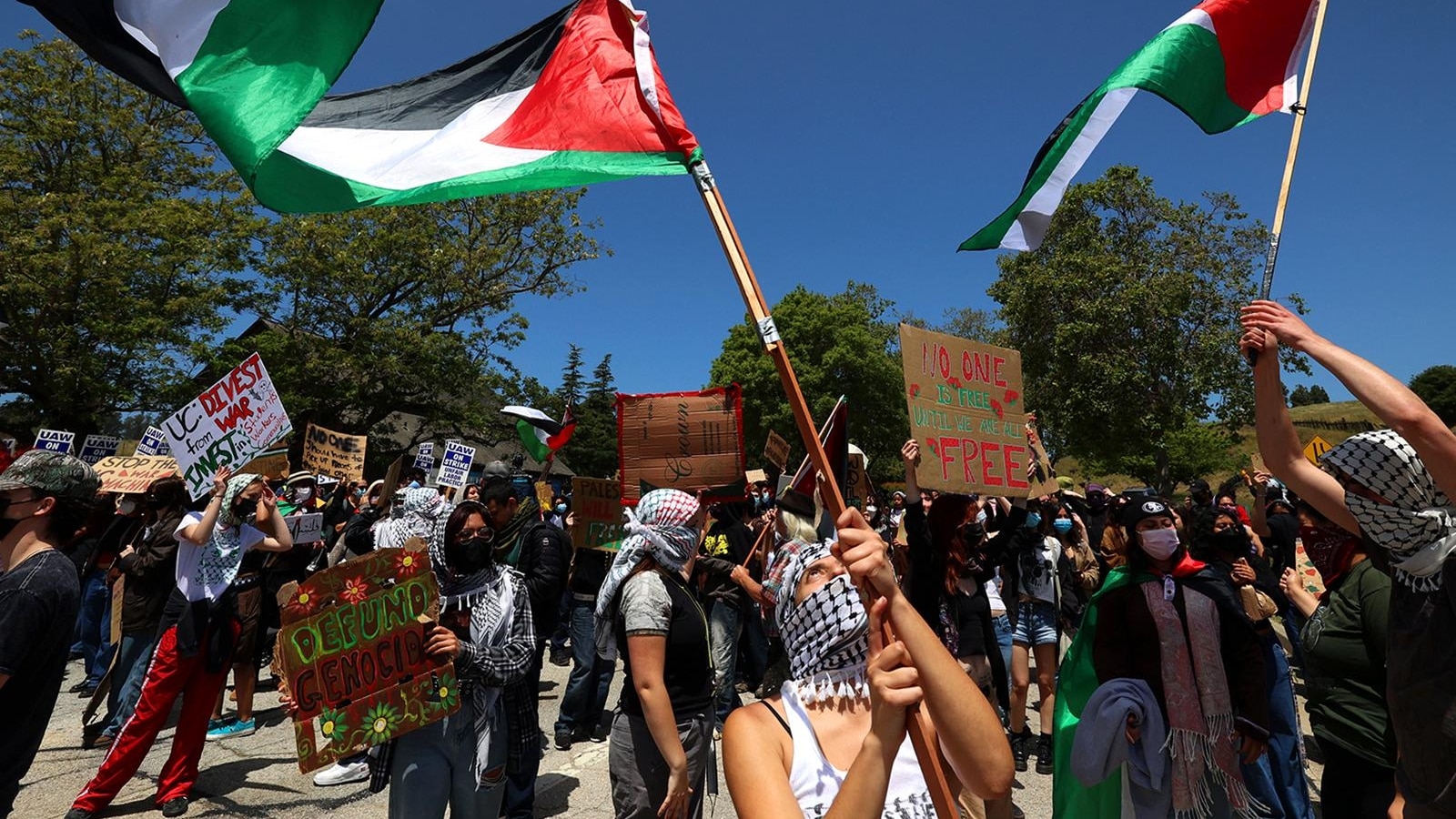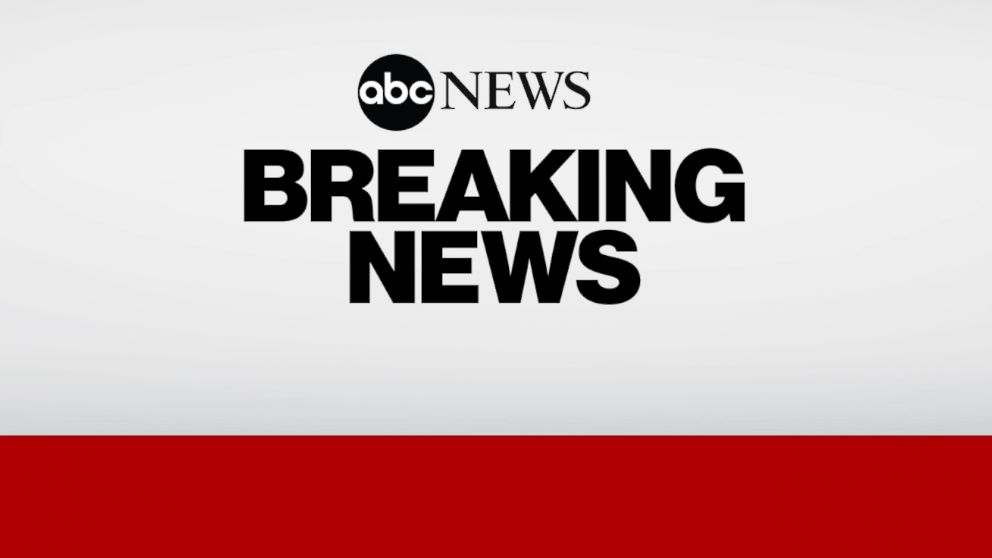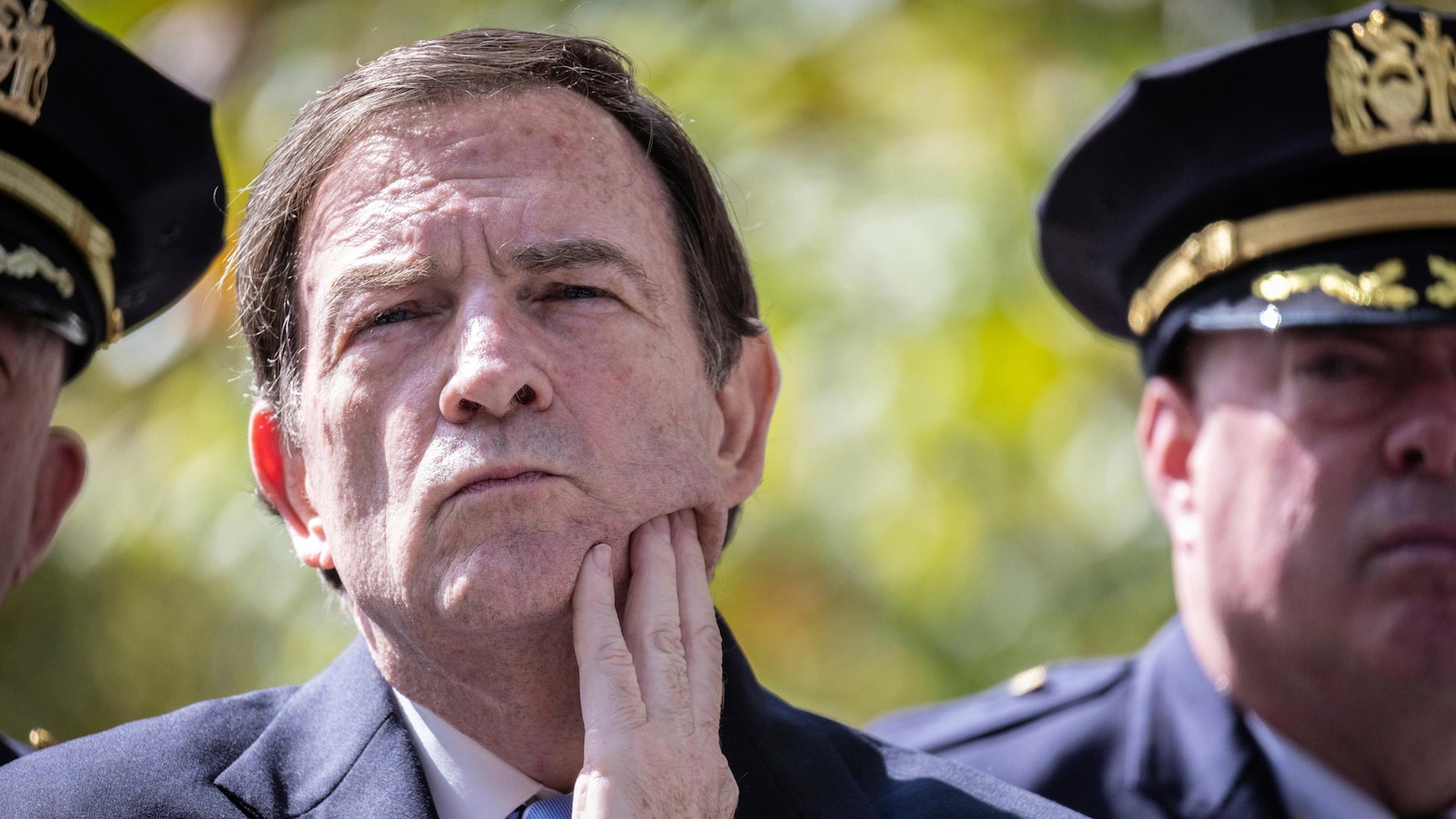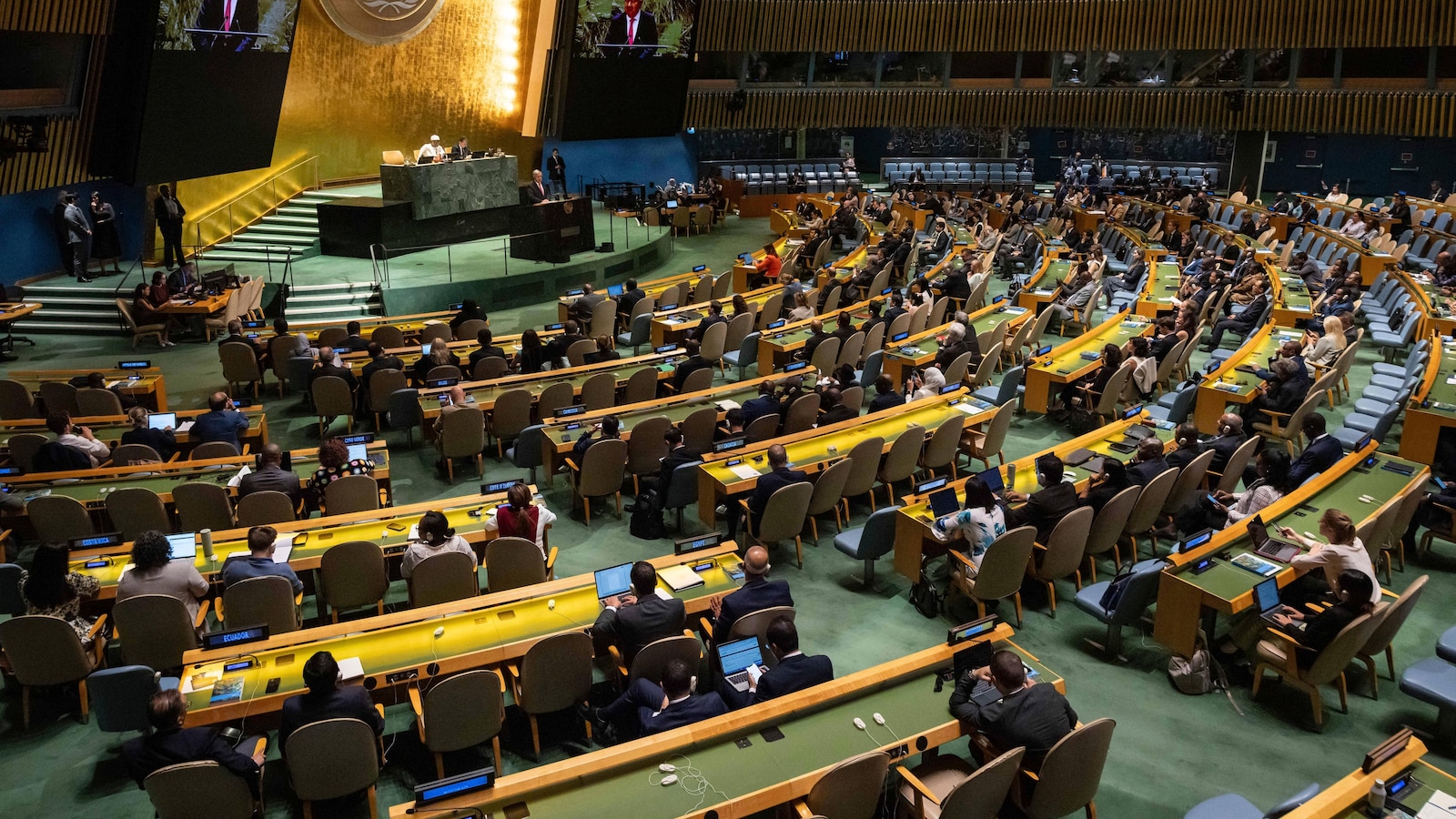
SANTA CRUZ, Calif. — Police approached arm-in-arm protesters early Friday at the University of California, Santa Cruz, a day after arrests at a pro-Palestinian encampment at a Detroit campus and a student walkout during commencement at the Massachusetts Institute of Technology.
Video showed a line of police with batons a few feet from protesters at the California campus. It wasn’t immediately clear if there were any arrests or injuries. The university was holding classes remotely on Friday.
Pro-Palestinian protesters have blocked the main entrance to campus this week.
“We call on these protesters to immediately reopen full access to the campus and return to protesting in a manner consistent with both our community values and our student code of conduct. Denying instructional access is not free speech,” university leaders said in a letter to the community Thursday.
Graduate student workers continued a strike that began last week over the university system’s treatment of pro-Palestinian protesters.
Protest camps sprang up across the U.S. and in Europe this spring as students demanded their universities stop doing business with Israel or companies that they say support its war in Gaza. Organizers seek to amplify calls to end Israel’s war with Hamas, which they describe as a genocide against the Palestinians.
On Thursday, police in riot gear removed fencing and broke down tents erected last week on green space near the undergraduate library at Wayne State University in Detroit. At least 12 people were arrested.
President Kimberly Andrews Espy cited health and safety concerns and disruptions to campus operations. Staff were encouraged to work remotely this week, and in-person summer classes were suspended.
The camp, she said, “created an environment of exclusion — one in which some members of our campus community felt unwelcome and unable to fully participate in campus life.”
Another outdoor commencement ceremony was scheduled Friday at MIT in Cambridge, near Boston, a day after some graduates walked out of one, disrupting it for 10 to 15 minutes. They wore keffiyehs, the checkered scarves that represent Palestinian solidarity, over their caps and gowns, chanted “free, free Palestine,” and held signs that said, “All eyes on Rafah.”
“There is going to be no business as usual as long as MIT holds research projects with the Israeli Ministry of Defense,” said David Berkinsky, 27, who earned a doctorate degree in chemistry and walked out. “There are no graduates in Gaza. There are no universities left in Gaza left because Israeli has bombed every single one.”
Eesha Banerjee, a 20-year-old from Birmingham, Alabama, who received her bachelor’s degree in computer science, engineering and physics and walked out, said she wants to pressure MIT to become a better place.
“While I’m still here, I want to use every chance I can to push this institute to be better,” she said. “I want MIT to be the institution that it can be, and it can’t be that until it drops its ties, drops its complicity.”
Some people at the event swore at the protesters and yelled, “Good riddance to Hamas terror fans.” A pro-Palestinian encampment at MIT was cleared in early May.
Police use batons to disperse Israel-Hamas war protesters at UC Santa Cruz
The ongoing conflict between Israel and Hamas has sparked protests around the world, including on college campuses. Recently, tensions escalated at the University of California, Santa Cruz, as police used batons to disperse a group of protesters.
The protests at UC Santa Cruz began peacefully, with students and community members gathering to voice their opinions on the conflict in the Middle East. However, as emotions ran high and tensions flared, the situation quickly escalated. Police were called in to maintain order and ensure the safety of all those involved.
In a statement released by the university, officials explained that the decision to use batons was made in response to the protesters becoming increasingly aggressive and refusing to disperse. The use of force was deemed necessary to prevent further escalation and protect the safety of everyone involved.
While some have criticized the police for their actions, others have defended their response, citing the need to maintain order and ensure the safety of all those present. The incident has sparked a larger conversation about the role of law enforcement in handling protests and the balance between maintaining public safety and protecting the rights of individuals to peacefully assemble.
The clash at UC Santa Cruz serves as a reminder of the deep divisions and strong emotions surrounding the Israel-Hamas conflict. As tensions continue to escalate in the Middle East, it is important for communities to engage in open and respectful dialogue, while also recognizing the right of individuals to peacefully protest and express their opinions.
Moving forward, it is crucial for all parties involved to work towards finding peaceful resolutions to conflicts and promoting understanding and empathy among different groups. Only through open communication and a commitment to non-violence can we hope to achieve lasting peace and justice in our world.


